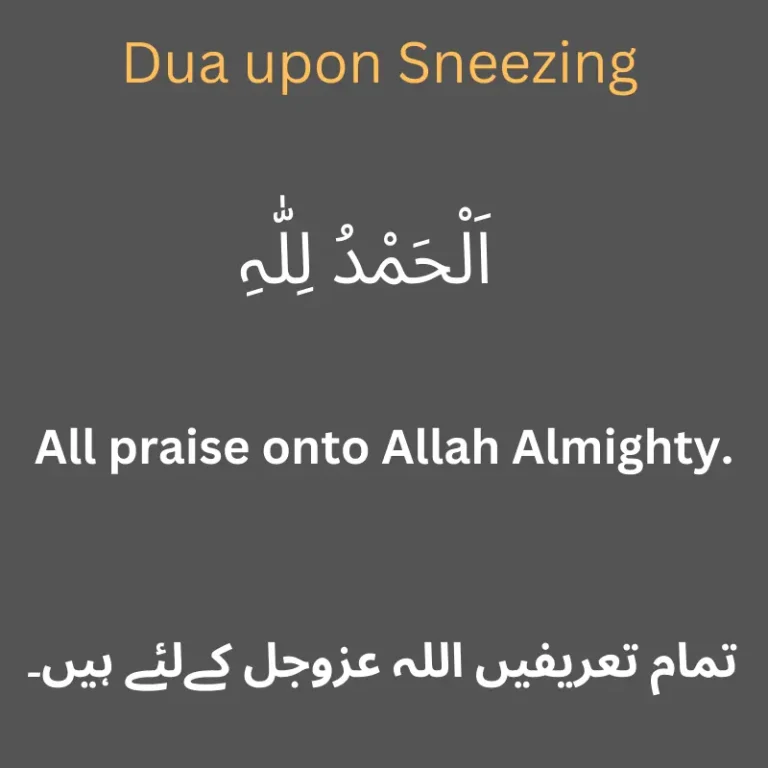La Ilaha Illa Anta Subhanaka Inni Kuntu Minaz Zalimin Meaning And Benefits
La Ilaha Illa Anta Subhanaka Inni Kuntu Minaz zalimin is a prayer that Prophet Yunus (Jonah) recited when he called upon Allah while inside the belly of the fish.
This short and powerful Dua holds great significance. In this post, we will explore the meaning and benefits of this versatile supplication.
La Ilaha Illa Anta Subhanaka Inni Kuntu Minaz-zalimin In Arabic
لَّآ إِلَٰهَ إِلَّآ أَنتَ سُبْحَٰنَكَ إِنِّى كُنتُ مِنَ ٱلظَّٰلِمِينَ
Transliteration:
“Laa ilaha illa anta subhanaka inni kuntu mina al-zhalimeen.”
La Ilaha Illa Anta Subhanaka Inni Kuntu Minaz Zalimin Meaning in English
“There is no God except You, You are exalted. Indeed, I have been of the wrongdoers.”
The dua “La ilaha illa Anta, Subhanaka” holds profound meaning and significance in Islam. It translates to “There is no deity except You, You are exalted.” This dua is derived from a verse in the Quran and is associated with the story of Prophet Yunus (Jonah).
- Acknowledgement of the Oneness of Allah: “La ilaha illa Anta” emphasizes the fundamental belief in the oneness of Allah. It affirms that there is no deity or divinity worthy of worship except Allah alone. This declaration reinforces monotheism, the cornerstone of Islamic faith.
- Recognition of Divine Perfection: The phrase “Subhanaka” conveys the idea of exalting and glorifying Allah. It acknowledges His absolute perfection, free from any imperfections or deficiencies. By declaring Allah’s transcendence, the dua acknowledges His attributes of greatness, majesty, and holiness.
- Humility and Repentance: Prophet Yunus recited this dua while inside the belly of a fish, realizing his mistake and seeking forgiveness from Allah. The dua carries an undertone of humility, remorse, and repentance. It serves as a reminder of our own fallibility as humans and the need to turn to Allah in times of difficulty or when we have erred.
- Seeking Allah’s Mercy and Forgiveness: The dua implies seeking Allah’s mercy and forgiveness. By acknowledging His oneness and perfection, we express our dependence on Him and seek His compassion and pardon for our transgressions. It is an admission of our shortcomings and a plea for His mercy to overcome them.
- Tawakkul (Reliance on Allah): Reciting this dua also reflects an act of placing complete trust and reliance on Allah. By recognizing His exclusive power and authority, we demonstrate our trust that He alone can provide guidance, protection, and resolution to our problems.
Overall, the dua “La ilaha illa Anta, Subhanaka” encompasses a profound sense of monotheism, humility, repentance, and reliance on Allah. It serves as a reminder of our relationship with the Creator, reinforcing our faith and seeking His mercy, forgiveness, and guidance in our lives.
La Ilaha Illa Anta Subhanaka Inni Kuntu Minaz Zalimin Wallpaper

Benefits of Ayat E Karima in English
Ayat-e-Karima, also known as the “Verse of Honor,” in arabic “La Ilaha Illa Anta Subhanaka Inni Kuntu Minaz Zalimin” holds great significance in Islam. Its benefits are believed to be numerous. When recited with sincerity and faith, the Ayat-e-Karima is said to bring several blessings and rewards. Some of the potential benefits associated with reciting this verse include:
- Seeking forgiveness: Reciting Ayat-e-Karima is believed to be a means of seeking forgiveness from Allah for one’s sins and shortcomings.
- Removing difficulties: It is believed that reciting this verse during times of hardship and distress can help alleviate difficulties and bring about relief.
- Protection and safety: Ayat-e-Karima is thought to provide spiritual protection and serve as a shield against negative influences, evil eye, and harm.
- Spiritual blessings: Reciting this verse is believed to bring spiritual blessings, inner peace, and a deep sense of connection with Allah.
- Opening doors of mercy: The Ayat-e-Karima is said to open doors to Allah’s mercy and compassion, allowing individuals to experience His grace and blessings.
It is important to note that while these benefits are widely mentioned in Islamic teachings and traditions, the true efficacy and blessings derived from reciting Ayat-e-Karima ultimately depend on the sincerity, faith, and intentions of the individual reciting it.
What does lailaha illa anta subhanaka meaning?
The phrase “La ilaha illa anta, Subhanaka” is an Arabic phrase from a verse in the Quran (Surah Al-Anbiya, verse 87). In English, it translates to “There is no deity except You, Glorified are You.”








